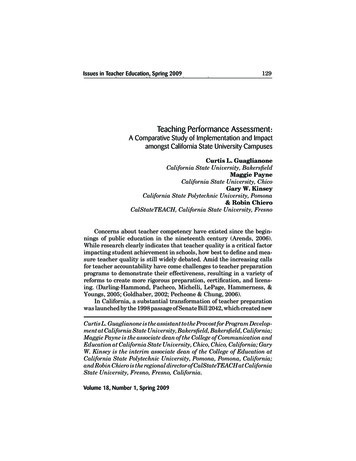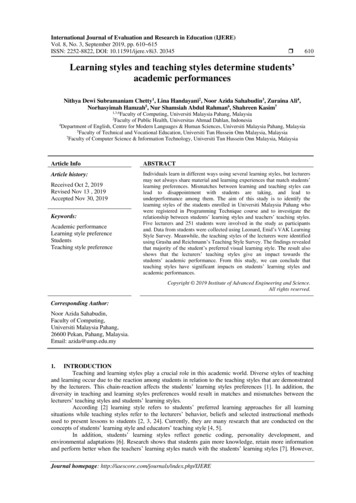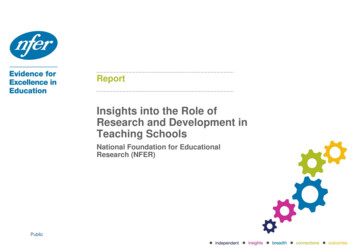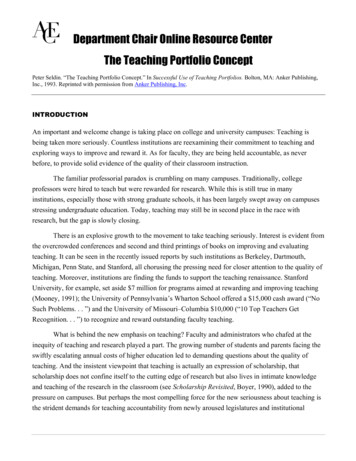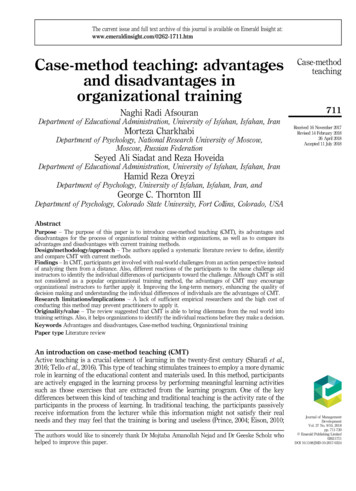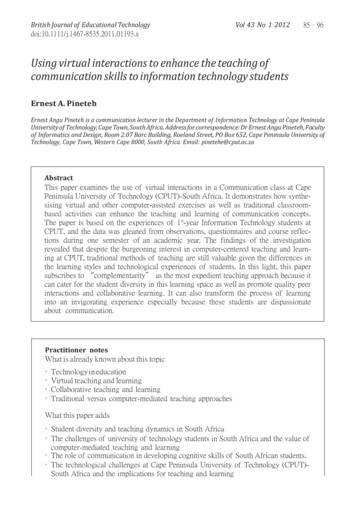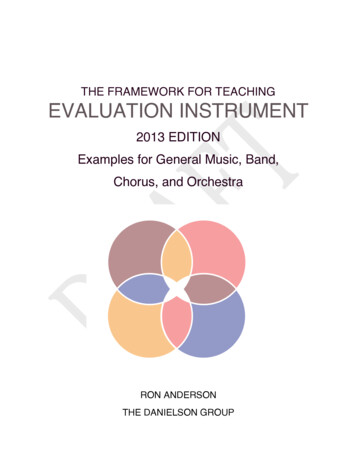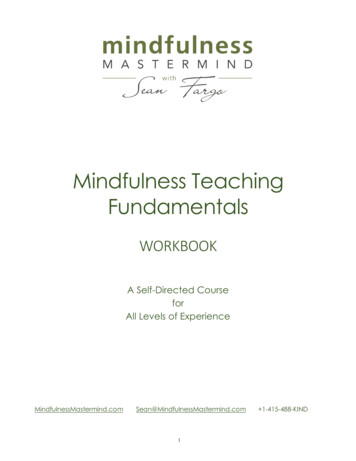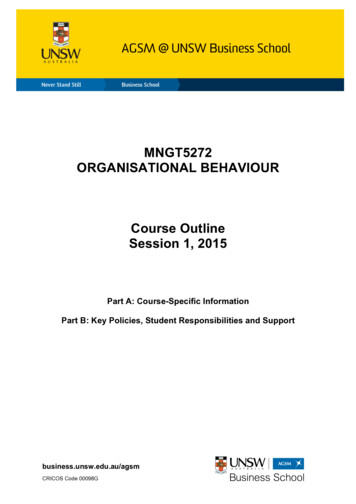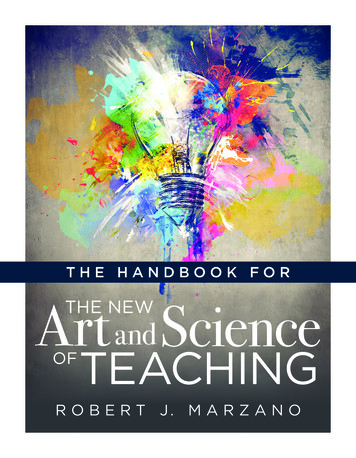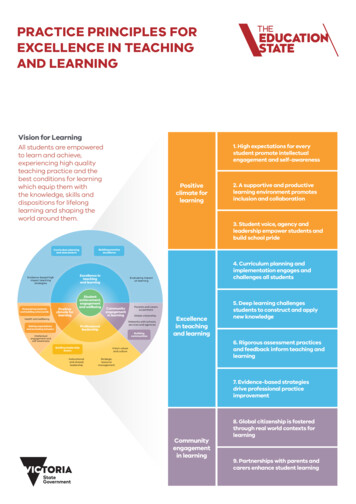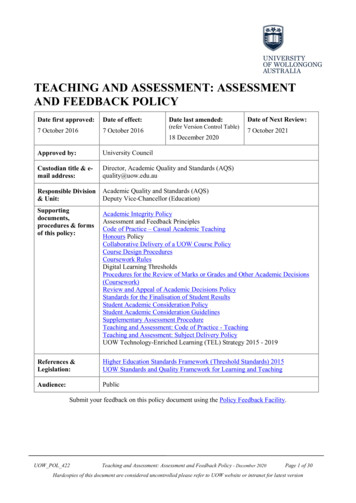
Transcription
TEACHING AND ASSESSMENT: ASSESSMENTAND FEEDBACK POLICYDate first approved:Date of effect:7 October 20167 October 2016Approved by:University CouncilCustodian title & email address:Director, Academic Quality and Standards (AQS)quality@uow.edu.auResponsible Division& Unit:Academic Quality and Standards (AQS)Deputy Vice-Chancellor (Education)Supportingdocuments,procedures & formsof this policy:Date last amended:(refer Version Control Table)18 December 2020Date of Next Review:7 October 2021Academic Integrity PolicyAssessment and Feedback PrinciplesCode of Practice – Casual Academic TeachingHonours PolicyCollaborative Delivery of a UOW Course PolicyCourse Design ProceduresCoursework RulesDigital Learning ThresholdsProcedures for the Review of Marks or Grades and Other Academic Decisions(Coursework)Review and Appeal of Academic Decisions PolicyStandards for the Finalisation of Student ResultsStudent Academic Consideration PolicyStudent Academic Consideration GuidelinesSupplementary Assessment ProcedureTeaching and Assessment: Code of Practice - TeachingTeaching and Assessment: Subject Delivery PolicyUOW Technology-Enriched Learning (TEL) Strategy 2015 - 2019References &Legislation:Higher Education Standards Framework (Threshold Standards) 2015UOW Standards and Quality Framework for Learning and TeachingAudience:PublicSubmit your feedback on this policy document using the Policy Feedback Facility.UOW POL 422Teaching and Assessment: Assessment and Feedback Policy - December 2020Page 1 of 30Hardcopies of this document are considered uncontrolled please refer to UOW website or intranet for latest version
Contents1Purpose . 32Definitions . 33Application & Scope . 34Policy Principles. 35Assessment and Feedback at UOW. 46Assurance of Learning . 67Assessment and Feedback Practice . 68Assessment of Honours Projects . 99Assuring Standards of Assessment . 1210Retention of Assessment Records . 1611Student Concerns and Complaints . 1612Roles & Responsibilities . 1713Version Control and Change History . 18UOW POL 422Teaching and Assessment: Assessment and Feedback Policy - December 2020Page 2 of 30Hardcopies of this document are considered uncontrolled please refer to UOW website or intranet for latest version
Purpose1.The purpose of this Policy is to set out the University of Wollongong’s approach to effectivelearning, teaching and assessment, including the principles and minimum standards underlyingteaching and assessment practice.2.This Policy should be read in conjunction with the following associated policy documents:3.a.Teaching and Assessment: Code of Practice – Teaching;b.Teaching and Assessment: Subject Delivery Policy; andc.Code of Practice – Casual Academic Teaching.The following separate policy documents provide further direction in relation to specific aspectsof assessment and feedback:a.Academic Integrity Policy;b.Student Academic Consideration Policy;c.Supplementary Assessment Procedure;d.Examination Rules and Procedures;e.Standards for the Finalisation of Student Results; andf.English Language Policy.Definitions1.All definitions relating to Teaching and Assessment are detailed in section 2 of the Teaching andAssessment: Code of Practice – Teaching.Application & Scope1.This Policy applies to teaching, learning and assessment of all undergraduate and postgraduatecoursework subjects at the University of Wollongong that are taught onshore and offshore,delivered in any mode, including on campus, flexible or distance (or online) and includingcoursework subjects where the primary or only assessment task is a creative or special project oran Honours Project. This Policy should be read in conjunction with other, related policies inparticular the Teaching and Assessment: Code of Practice - Teaching and the Teaching andAssessment: Subject Delivery Policy.2.The Policy does not apply to the University of Wollongong in Dubai.3.This policy applies to the assessment of all Honours Projects with a weighting of 24 credit pointsor more. The assessment practices outlined in this policy may also be applied to Honours Degreesubjects that include an Honours Project with a lesser weighting. This policy should be read inconjunction with the Honours Policy, with regard to the responsibilities of the University,Academic Unit, supervisors and students.Policy Principles1.The University has a responsibility to provide a quality learning environment for students inaccordance with its Strategic Plan and broader legislative and regulatory requirements.UOW POL 422Teaching and Assessment: Assessment and Feedback Policy - December 2020Page 3 of 30Hardcopies of this document are considered uncontrolled please refer to UOW website or intranet for latest version
2.The University values excellence in teaching and assessment practice and is committed toproviding an effective learning environment for its students. To this end, the University has in placequality assurance processes and procedures to support effective teaching and appropriate,consistent and fair assessment practices. Underlying these processes and procedures are theprinciples of equity, transparency and collegiality.Assessment and Feedback at UOW1.This section provides a framework for assessment and feedback practice in all University ofWollongong degrees at both subject and course level (across all campuses, delivered in any mode).It is based on international, research-based, best-practice models and aligns with the requirementsof the Higher Education Standards Framework (Threshold Standards) 2015. It should be read inassociation with the good practice examples on the UOW Assessment and Feedback Principleswebsite.Vision2.Assessment is critical to the learning and teaching cycle. It involves processes, tasks, feedback,reflection and dialogue with teaching staff and peers. Together, these enable students to developand apply their knowledge and skills, and extend their capacity to become confident, capable, selfregulating lifelong learners.Purpose3.Assessment tasks and processes fulfil three key roles in student learning:a.facilitate student capacity to meet learning outcomes (formative);b.develop student ability to become confident self-evaluators (sustainable assessmentliteracy); andc.provide evidence of achievement of learning outcomes (summative).4.In complex assessment tasks these roles may overlap.5.Engaged, aligned, resourceful, moderated and relevant assessment design ensures the integrity ofcourse delivery and student learning. It is critical to student engagement and course qualityassurance and is therefore a central part of academic practice for all educators. UOW recognisesthe centrality of assessment and feedback processes by rewarding and resourcing good practice andinnovation through Continuing Professional Development and the Academic PerformanceFramework.Assessment and Feedback PrinciplesPrinciple 1 - Aligned6.Good assessment design is a whole of course task that requires:UOW POL 422a.planning and systematic development by course teams;b.explicit alignment with course and subject learning outcomes; andc.focus on scaffolding and integrating learning, especially at key points throughoutthe course.Teaching and Assessment: Assessment and Feedback Policy - December 2020Page 4 of 30Hardcopies of this document are considered uncontrolled please refer to UOW website or intranet for latest version
Principle 2 - Balanced7.Course assessment design will have an appropriate balance of summative and formative assessmenttasks comprising:a.Formative assessment and learning tasks: that engage students in productiveopportunities to apply knowledge and skills and gain feedback in a timely,constructive manner in order to support the students’ continuous development.b.Assessment tasks early in a degree program will introduce students to importantassessment skills and literacies.c.Summative assessment tasks that mirror, complement or build on formativeassessment and learning tasks to ensure student learning at key points in the courseor for the purpose of warranting/confirming that learning outcomes have been met(and that will be kept to the minimum necessary for that purpose).Principle 3 - Engaged feedback8.Assessment involves an engaged process that begins with clearly articulated task guidelines andcriteria but should extend to active discussion that facilitates students taking ownership of criteriaand standards for their assessment. Post-task feedback continues this dialogue on the page or screenbut should be extended through discussion, opportunities for peer assessment and sharing andindividual consultations (where needed or requested). Tasks and feedback loops must be timed toensure sufficient opportunities are provided to put the feedback into practice.Principle 4 - Designed for learning9.Whether formative or summative, assessment tasks will be designed to enable student learning.Tasks should have a positive impact on student behaviour – when, how and why they study – andbuild an approach that develops sustained and self-regulated learning. Good assessment designensures:UOW POL 422a.Authenticity – focusing on intellectually challenging real-world practices throughenquiry-based processes.b.Validity – carefully and explicitly assessing whether the intended learning outcomesare being addressed.c.Equity - tasks should be designed having regard for the diversity of studentsincluding backgrounds, experiences and learning styles.d.Relevance – tasks with a sense of purpose that meet the student’s interests allowingfor individual choice of task should be considered.e.Integrity – tasks should introduce and engage students in ethical research andcommunication practices.f.Transparency – tasks should be clearly articulated and performance standards madeexplicit through an assessment rubric or other instrument made available when theassignment is set.g.Appropriate effort – tasks need to be intellectually challenging and enable students’learning without placing undue burdens on either staff or student workloads.Teaching and Assessment: Assessment and Feedback Policy - December 2020Page 5 of 30Hardcopies of this document are considered uncontrolled please refer to UOW website or intranet for latest version
Principle 5 - Quality assured10. Academic Program Directors and Subject Coordinators will ensure assessment is:a.Consistent: assessment criteria referenced in assessment rubrics;b.Moderated and calibrated: grading decisions between markers are reliably applied;andc.Reviewed: to ensure continuous, incremental enhancement of assessment tasksthrough incorporating student feedbackAssurance of Learning1.In accordance with the Course Design Procedures, a well-developed Assurance of Learning processis characterised by a range of activities including:a.teaching and learning activities arranged to foster progressive and coherentachievement of expected learning outcomes;b.methods of assessment which are capable of confirming that students are achievingthe learning outcomes; andc.grades which reflect the level of student attainment.Assessment and Feedback Practice1.The requirements described in sections 7.2 to 7.36 reflect the Assessment and Feedback Principlesin practice at UOW.Assessment Methods and Tasks2.Assessment methods must:a.assure learning against the relevant learning outcomes, and, where applicable, themajor study and/or course learning outcomes;b.reflect the level of complexity required by students to demonstrate the relevantlearning outcomes; andc.have a weighting appropriate the time and effort required to complete and mark thetask, ensuring where relevant the inherent requirements of the course.3.Assessment methods may require reasonable adjustment for students registered with a disability.4.Clear and appropriate criteria must be developed and used for marking all assessment tasks in asubject and details of the criteria must be communicated to students in the Subject Outline.5.The development and use of assessment rubrics is required to assist in measuring the differinglevels of attainment of the requirements of an assessment task (see 9.5 for further information).6.No single assessment task will count for more than 70% of the final mark for the subject, with theexception of subjects designated as creative or special projects, student professional experience, orother tasks with the approval of the Head of Academic Unit.7.At least one assessment task for each subject must require students to produce written work (e.g.essay, problem solving exercise, short answer exercise, or documented creative work).UOW POL 422Teaching and Assessment: Assessment and Feedback Policy - December 2020Page 6 of 30Hardcopies of this document are considered uncontrolled please refer to UOW website or intranet for latest version
8.Group-based assessment must be assessed by means that allow the real contribution of eachmember of the group to be determined. The assessment weighting of group-based assessment mustnot constitute more than 50% unless approved by the Head of Academic Unit.9.Where attendance requirements are set for a subject, attendance records must be kept. Markscannot be awarded for attendance.10. Where class participation is used for assessment, explicit marking criteria must be used and a recordmust be kept by the academic staff member conducting the class, retained in accordance withSchedule 2 of this Policy.11. Where scaling is used in a subject, the method of scaling must be clearly stated in the SubjectOutline and it must preserve the rank order within a cohort (refer to Schedule 1 of the Standardsfor the Finalisation of Student Results). No mark can be scaled down after the release of results bythe Student and Accommodation Services Division.12. In accordance with the Supplementary Assessment Procedure, if supplementary assessment isdeemed to be unsuitable for the subject, then the Subject Outline must include an explicit statementto this effect. .13. Assessment task due dates cannot fall during the study recess period, except with the prior approvalof the Head of Academic Unit.Engaged Feedback to Students14. Supportive, constructive and timely feedback, which is clearly linked to the assessment criteria, isan essential component of the learning process. It enables students to build on their positiveachievements and have a clear sense of what they need to do to improve their performance whenundertaking subsequent assessment tasks.15. Students must be provided with appropriate and useful feedback on performance in all assessmentand learning tasks (with the exception of a final examination). Following the declaration of a finalmark and grade for the subject, students have the right to obtain their final examination marks fromthe Subject Coordinator and to view and discuss their performance with the Subject Coordinatoror, if not available, the Head of Academic Unit or nominee.16. Students must receive feedback on assessment tasks in sufficient time to enable them to improvetheir performance in areas of knowledge or skill development before further assessment isattempted.17. Assessment tasks, with the exception of a final examination, must be marked and made availableto students within 15 working days of the submission date unless otherwise specified in the SubjectOutline.18. Students must receive feedback:UOW POL 422a.on at least one formative assessment activity (which may or may not be a gradedactivity) by the census date for the session in which the subject is delivered; andb.on at least one assessment task (that is, an activity that a student is required tocomplete to provide a basis for an official record of achievement or certification ofcompetence) prior to the deadline for students to withdraw from a subject withoutacademic penalty (week 9 in a standard session).Teaching and Assessment: Assessment and Feedback Policy - December 2020Page 7 of 30Hardcopies of this document are considered uncontrolled please refer to UOW website or intranet for latest version
19. In subjects where a final examination is set, all assessment tasks that relate to the subject matterincluded in the final examination in a subject must be marked and made available to students priorto the start of the examination period.20. Except in subjects where grades of unsatisfactory and satisfactory are used, assessment tasks mustbe awarded a numerical mark.Procedures for Managing Submission and Return of Written Assessment Tasks21. Each academic unit must have written procedures, as specified in Schedule 1 of this Policy, for thesubmission, including by means of online assignment submission, and return of written assessmenttasks that provide safeguards against claims of non-receipt and non-return.22. An appropriate digital receipting process must be in place for those assessment tasks submittedelectronically (e.g. via Moodle or some other Learning Management System application).23. Dates, times and means of submission of assessment tasks must be specified in the Subject Outlinefor each subject, in accordance with the Teaching and Assessment: Subject Delivery Policy.24. Students who do not meet the specified deadline for an assessment task will be penalised as set outin the Subject Outline.25. Extensions on assessment completion requirements may be given to students only in accordancewith the Student Academic Consideration Policy.26. In accordance with sections 9.13 – 9.15 where an assessment item is subject to the moderationprocess outlined in this policy, the subject coordinator must retain an appropriate sample of studentwork.Faculty Examinations27. The Head of Academic Unit is responsible for ensuring that faculty examinations are conducted inaccordance with the Examination Rules and associated procedures; or approving that a facultyexamination may be conducted under varied guidelines, subject to such variation beingappropriately communicated to students. The requirements set out in this Policy, and the followingUniversity policies, must be taken into account when setting faculty examinations:a.Work Health and Safety Policy,b.Disability Policy – Students, andc.Respect for Diversity Policy.28. The dates and times for faculty examinations must be set out in the Subject Outline, in accordancewith the Teaching and Assessment: Subject Delivery Policy. Alternative arrangements for studentswho are unable to attend faculty examinations must be made in accordance with the StudentAcademic Consideration Policy.Recording of Student Marks29. All marks must be entered into SMP or Moodle (from which marks are required to be importedinto SMP) at or before the time the mark is provided to the student, in order to:UOW POL 422a.enable real-time review and analysis of student performance, which is undertaken inorder to support student engagement and progress; andb.ensure a central record is maintained, in accordance with Schedule 2 of this Policy.Teaching and Assessment: Assessment and Feedback Policy - December 2020Page 8 of 30Hardcopies of this document are considered uncontrolled please refer to UOW website or intranet for latest version
30. Any additional documentation used to determine student results (such as spreadsheets) must bestored in the University’s network drive so that they are included in periodic IT back up exercises,in accordance with Schedule 2 of this Policy.31. Student marks must be stored using internal UOW systems. Student marks, or other informationpertaining to student academic activities and performance must not be distributed to third partyservices for management and/or storage.Finalisation of Results32. The Faculty must follow the processes for finalising students’ marks and grades as stipulated inthe Standards for the Finalisation of Student Results which also set out the roles and responsibilitiesof the Academic Unit Assessment Committee and the Faculty Assessment Committee.33. In accordance with the Coursework Rules:a.an approved grade of performance and an overall mark (except where a subject ismarked on a satisfactory/unsatisfactory basis) will be determined, declared andreleased for each subject in which a student is enrolled; or,b.a withheld result may be given in a subject but an approved grade of performanceand overall mark (except where a subject is marked on a satisfactory/unsatisfactorybasis) must be declared within ten weeks after the release of results date.34. Unless otherwise approved, the overall mark for each student in a subject shall be determined onthe scale of 0 to 100% by the methods set out in the Subject Outline.35. Where an incorrect grade or mark has been declared as a result of an administrative error, thevariation of result(s) must be approved as per the Standards for the Finalisation of Student Resultsand Coursework Rules.36. The approved grades of performance for undergraduate subjects, honours programs andpostgraduate subjects are set out in the Coursework Rules. The UOW Grade Descriptors, providedat Schedule 1 of this Policy, describe student performance at each of the University’s grade levels.Assessment of Honours ProjectsHonours Guide1.All procedures and processes concerning the assessment of Honours Projects must be approved bythe relevant Faculty Education Committee and set out in the Honours Guide for that Faculty,Academic Unit or course or for Professional Honours Degrees where the Honours Project is worthless than 24 credit points, in the relevant subject outline for the subject outline for the subjectregulating the completion of the Honours Project.Assessment of Honours Projects with a weighting of 24 credit points or more2.The requirements set out in sections 8.2 – 8.19 apply to the assessment of an Honours Project witha weighting of 24 credit points or more. Honours Degree courses that include a project with a lesserweighting may also choose to adopt the procedures set out in this section.3.Documented quality assurance processes must be in place in each academic unit to ensure theindependent, transparent and impartial assessment of all Honours Projects.UOW POL 422Teaching and Assessment: Assessment and Feedback Policy - December 2020Page 9 of 30Hardcopies of this document are considered uncontrolled please refer to UOW website or intranet for latest version
4.The assessment of an Honours Project is to be undertaken by two honours examiners. Wherepossible, at least one of the honours examiners should be external. An honours examiner is externalwhen the honours examiner is external to the Academic Unit and may be external to the Faculty orto the University.5.Notwithstanding section 8.4, each Academic Unit must externally benchmark the standard ofhonours projects in each Honours Degree course against comparable Australian universities at leastonce every three (3) years. External benchmarking may involve:a.the use of honours examiners from another Australian university for the examinationof a representative sample of Honours Projects; orb.review of a representative sample of Honours Projects by academics from at leastone other Australian university as part of quality assurance of the standard ofHonours Projects.Choice of Honours Examiners6.Honours examiners shall be chosen by the Honours Coordinator in consultation with theSupervisor, and having regard to the requirements in section 8.8.7.A Supervisor cannot examine an Honours Project with a weighting of 24 credit points or more thatthey have supervised.8.To be suitable for the role, an honours examiner must be familiar with the expectations andrequirements of an Honours Degree course. They must also:a.hold an AQF Level 9 qualification or higher, or equivalent; andb.be an active researcher or have a proven research record; orc.have previous successful experience in supervision or examination of HonoursDegree students; ord.have some research experience and have substantial specialised knowledge in thesubject matter of the Honours Project.Examination Process9.Honours examiners are to be given up to 15 working days to provide a report to the relevantAssessment Committee, to enable the Faculty to meet University deadlines for the declaration ofmarks and for students to be considered for scholarships and/or graduation.10. Honours examiners shall be provided with a clear written brief which covers the following:UOW POL 422a.the essential requirements of the course;b.marking procedures, including the method of (and deadline for) reporting theirassessment the relevant Academic Unit;c.clear marking criteria for use in assessing the Honours Project;d.the relative weighting of the Honours Project compared with other assessmentcomponents;e.the requirement that honours examiners submit independent results;f.any other matters that the Academic Unit considers appropriate.Teaching and Assessment: Assessment and Feedback Policy - December 2020Page 10 of 30Hardcopies of this document are considered uncontrolled please refer to UOW website or intranet for latest version
11. Until the assessment of an Honours Project is complete and a report is submitted by an honoursexaminer, all communication between the honours examiner and the University regarding theHonours Project shall be directed through the Honours Coordinator, or the head of the relevantAcademic Unit or, if the head of the Academic Unit is the Honours Degree student’s Supervisor,another nominated academic.12. Honours Degree students and Supervisors shall not contact any honours examiner concerning theassessment of the Honours Project until the reports of all honours examiners are returned to andacted on by the Assessment Committee of the Academic Unit.13. Supervisors should be permitted to view the assessment reports and raise issues or points ofclarification prior to the Academic Unit or Faculty Assessment Committee meeting.14. The assessment reports from the honours examiners and the marks recorded for both the HonoursProject and any coursework components are to be forwarded to the relevant Assessment Committeefor final declaration of mark.15. The names of the honours examiners and copies of the honours examiners’ reports will be madeavailable to the student after the final mark has been declared.16. Each Faculty shall have written procedures for dealing with discrepancies between honoursexaminers’ marks for an Honours Project, approved by the Faculty Education Committee. Theseprocedures shall be communicated to students in the Honours Guide.17. Where there is a discrepancy of more than ten percentage points between the marks determined byany two honours examiners, and the discrepancy cannot be resolved by discussion between thehonours examiners, an additional marker shall be appointed by the Honours Coordinator to assessthe Honours Project. When this delays the assessment process, the Honours Degree student shouldbe notified that further advice has been sought.18. Each Faculty must have written procedures that specify:a.the role of additional honours examiners (for example, whether they are ‘blind’honours examiners who are not provided with previous honours examiners’ reportsor adjudicators who have access to those reports);b.how a final mark is to be determined following a report by an additional honoursexaminer; andc.where the additional honours examiner is an adjudicator, the criteria for selectingthat honours examiner.19. The Academic Unit Assessment Committee (where appropriate) is responsible for recommendingthe overall Honours mark for the subject in which the Honours Project forms the some or all of therequired assessment tasks to the Faculty Assessment Committee. In all cases, the FacultyAssessment Committee declares the final mark for the subject.Assessment of Honours Projects with a weighting of less than 24 credit points20. The owning Faculty of an Honours Degree course that includes an Honours Project with aweighting of less than 24 credit points may choose to adopt the assessment procedures set out insection 8.1 - 8.19.21. Where the procedures set out in section 8.1 - 8.18 are not adopted, section 7 of this Policy appliesto the assessment of the Honours Project.UOW POL 422Teaching and Assessment: Assessment and Feedback Policy - December 2020Page 11 of 30Hardcopies of this document are considered uncontrolled please refer to UOW website or intranet for latest version
22. In addition, the Academic Unit must have written procedures, approved by the Faculty EducationCommittee, that state:a.how honours examiners are chosen;b.where any of the honours exa
7. Course assessment design will have an appropriate balance of summative and formative assessment tasks comprising: a. Formative assessment and learning tasks: that engage students in productive opportunities to apply knowledge and skills and gain feedback in a timely, constructive manner in order to support the students' continuous .
